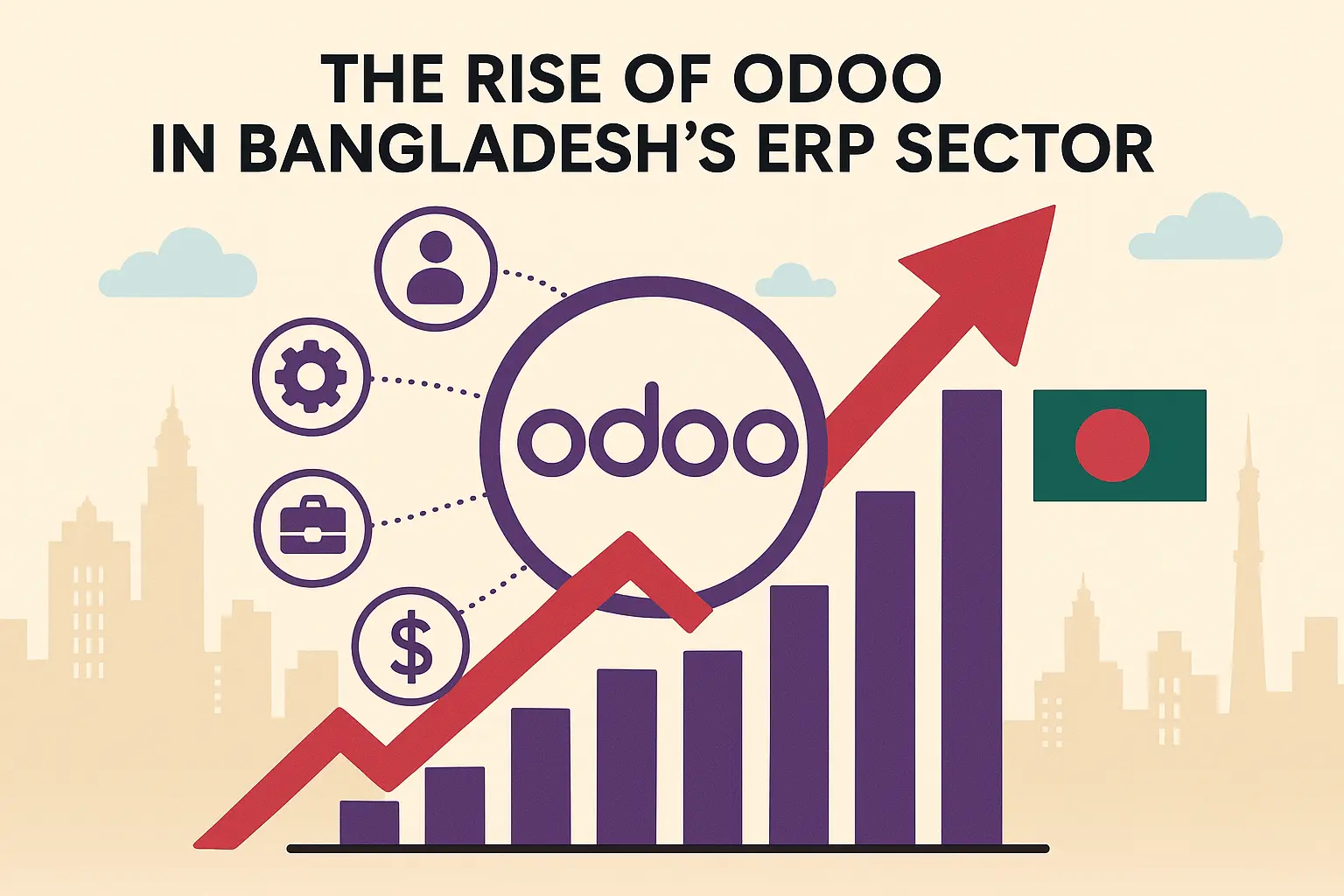
At one time, the ERP (Enterprise Resource Planning) sector in Bangladesh was largely monopolized by global ERP systems such as SAP Business One, Oracle NetSuite, and Microsoft Dynamics, which collectively held around 70% of the market share. These three platforms dominated the landscape, while Odoo—an open-source ERP platform—held only about 15-20% of the market. Some local ERP solutions existed as well, but their usage was minimal.
Despite being more affordable and easier to customize, Odoo faced several misconceptions in the early days. The main reasons behind this were that Odoo initially lacked some of the functionality and refinement that SAP, Oracle, or Microsoft Dynamics could offer. These misconceptions were driven by three key factors:

Dominance of Multinational Corporations
SAP, Oracle, and Microsoft Dynamics were the top choices for large corporate and industrial groups operating to international standards.

Technical Requirements
Large domestic companies, particularly export-oriented businesses, gradually leaned toward Oracle or Microsoft Dynamics due to their advanced reporting and integration capabilities.

Impact of Microsoft Dynamics
Especially popular among banks and tech-savvy companies, Microsoft Dynamics was preferred due to its seamless integration with other Microsoft products.
Odoo was generally viewed as a budget-friendly ERP solution focused on SMEs (small and medium-sized enterprises), with its adoption mostly limited to that segment.
The Shift: Real-World Implementation and Success of Odoo
Although Odoo started with a limited role, the market has seen a significant shift in recent years. Today, Odoo is no longer just for small businesses; it has become a viable solution for large and tech-driven organizations as well. Its customizability, modular design, and open-source nature have been key drivers of its success. With successful implementations, Odoo has proven itself to be effective not only for SMEs but also for large corporate entities.
Nowadays, Odoo is being successfully implemented in key sectors such as banking, manufacturing, healthcare, retail, and e-commerce. Local ERP service providers are now creating specialized Odoo-based solutions tailored for these industries, enabling successful ERP deployments.
The Decline of Misconceptions Around Odoo
The earlier misconceptions about Odoo have significantly diminished. Its low cost, high customizability, open-source framework, and proven success across various industries have played a major role in changing perceptions. As a result, many companies that previously preferred SAP, Oracle, or Microsoft Dynamics are now considering and implementing Odoo.
Odoo has established a strong presence in Bangladesh’s current ERP market, and its position is expected to grow stronger in the future—especially among companies seeking budget-friendly, modern, and technology-driven ERP solutions.
Odoo has now emerged as a formidable competitor in the ERP sector. Its innovative customization capabilities and ease of use have led to successful implementations across diverse sectors in Bangladesh. In the future, Odoo is likely to attract even more businesses and deliver increasingly advanced and effective solutions.